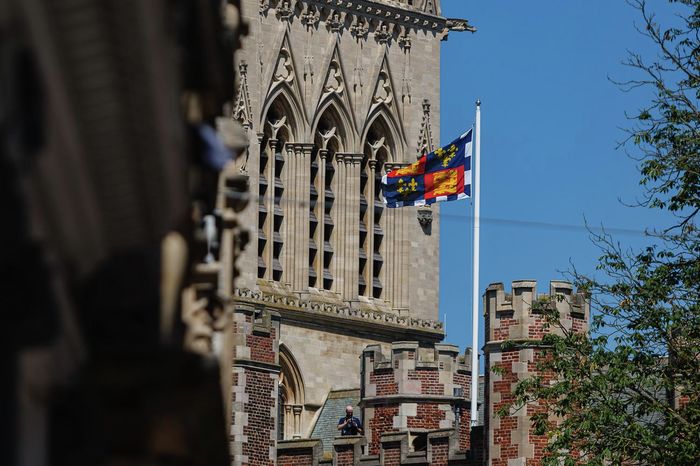Greens attack ‘tone deaf’ Cambridge Silicon Valley plans
Local authorities have repeatedly opposed government plans to make Cambridge ‘Europe’s tech capital’

The Cambridge Greens have joined the Lib Dems and Labour in attacking the government’s development plans for the city, which were welcomed by the University this month.
These criticisms add to growing concerns among local authorities that the government’s Cambridge 2040 initiative fails to engage with key issues, enforces top-down governance, and risks aggravating the town and gown divide.
The local Green Party has attacked the government’s ‘Case for Cambridge’ report, which announced funding for the creation of a new development corporation to oversee the transformation of Cambridge into the “Silicon Valley of Europe”.
In a statement, the party called the report “utterly tone deaf,” saying that it “presents a fairy tale scenario of how the university, its tech offshoots, and the associated elite population could become even wealthier over the next two decades”.
The report, published on the 6th of March following Chancellor Jeremy Hunt’s budget speech, has already been opposed by the local authorities including the city council’s Lib Dems. The local party warned that the plans “could see planning powers taken out of local hands […] adding another layer to Cambridge’s already complicated web of local government”.
The Greens echoed these criticisms in their recent remarks: “The proposal totally ignores all that Cambridge residents have been calling for in recent years: affordable housing, a reduction in the city’s extreme inequalities, and real solutions to the climate and biodiversity emergencies.”
Instead, the plan focuses on the wrong issues, say the Greens: “The report emphasises the need for housing but totally misses the point that the real priority is genuinely affordable homes for long-term residents”.
In the foreword to the government plan, the “new chapter” of Cambridge is described as “one where new space is created for the laboratories and research activity which Cambridge so urgently needs, and new housing for the talented graduates and academics who are currently priced out of the area.”
Sarah Nicmanis, Green Party parliamentary candidate for Cambridge, also has concerns that the plan will worsen the already high levels of inequality: “The new Local Plan […] is now being overturned by Gove’s top-down proposal, which risks aggravating the Town vs Gown sore that never seems to heal.”
Since first being announced in July 2023, the initiative, which includes proposals for tens of thousands of new homes being built, has come under frequent criticism for ignoring issues of water scarcity in the region.
Although a separate guidance document addressing these issues was published alongside the report, the Greens still say that they have “concerns that a key part of the guidance is the establishment of a water offsetting and credits system”.
“We strongly oppose this approach – studies have shown that the well-established carbon credits market has had little impact on carbon emissions”, they said, adding that they are “deeply concerned over the proposal’s approach to capitalisation no matter the cost”.
Despite criticism, the University has supported the plans, saying that the initiative “recognises the unparalleled research and scientific capabilities that the city holds” and will “unlock Cambridge’s potential as the world’s leading scientific powerhouse”.
 News / Cambridge students set up encampment calling for Israel divestment6 May 2024
News / Cambridge students set up encampment calling for Israel divestment6 May 2024 News / Cambridge postgrad re-elected as City councillor4 May 2024
News / Cambridge postgrad re-elected as City councillor4 May 2024 News / Some supervisors’ effective pay rate £3 below living wage, new report finds5 May 2024
News / Some supervisors’ effective pay rate £3 below living wage, new report finds5 May 2024 News / Gender attainment gap to be excluded from Cambridge access report3 May 2024
News / Gender attainment gap to be excluded from Cambridge access report3 May 2024 News / Academics call for Cambridge to drop investigation into ‘race realist’ fellow2 May 2024
News / Academics call for Cambridge to drop investigation into ‘race realist’ fellow2 May 2024






